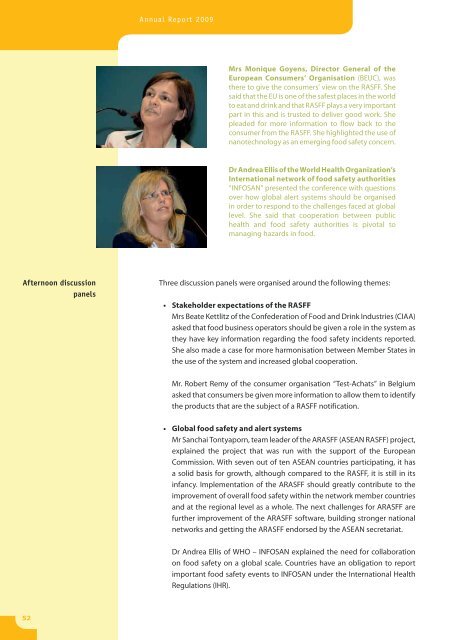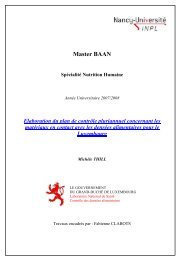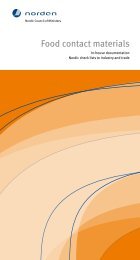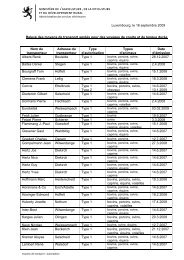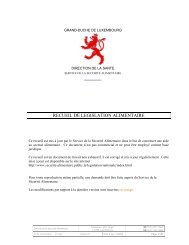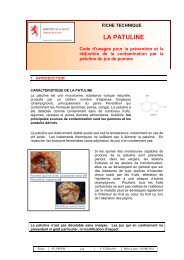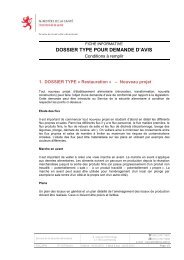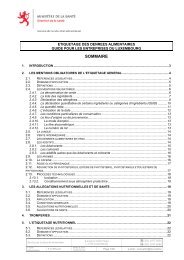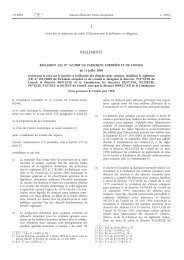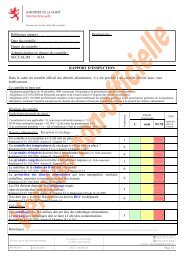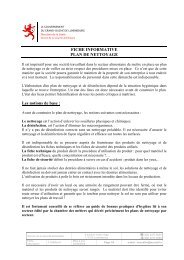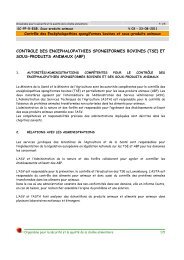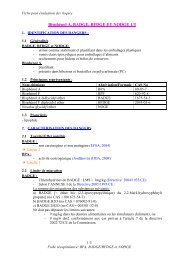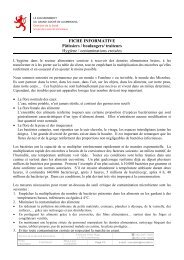(RASFF) Annual Report 2009 - European Commission - Europa
(RASFF) Annual Report 2009 - European Commission - Europa
(RASFF) Annual Report 2009 - European Commission - Europa
You also want an ePaper? Increase the reach of your titles
YUMPU automatically turns print PDFs into web optimized ePapers that Google loves.
<strong>Annual</strong> <strong>Report</strong> <strong>2009</strong><br />
Mrs Monique Goyens, Director General of the<br />
<strong>European</strong> Consumers’ Organisation (BEUC), was<br />
there to give the consumers’ view on the <strong>RASFF</strong>. She<br />
said that the EU is one of the safest places in the world<br />
to eat and drink and that <strong>RASFF</strong> plays a very important<br />
part in this and is trusted to deliver good work. She<br />
pleaded for more information to flow back to the<br />
consumer from the <strong>RASFF</strong>. She highlighted the use of<br />
nanotechnology as an emerging food safety concern.<br />
Dr Andrea Ellis of the World Health Organization’s<br />
International network of food safety authorities<br />
“INFOSAN” presented the conference with questions<br />
over how global alert systems should be organised<br />
in order to respond to the challenges faced at global<br />
level. She said that cooperation between public<br />
health and food safety authorities is pivotal to<br />
managing hazards in food.<br />
Afternoon discussion<br />
panels<br />
Three discussion panels were organised around the following themes:<br />
• Stakeholder expectations of the <strong>RASFF</strong><br />
Mrs Beate Kettlitz of the Confederation of Food and Drink Industries (CIAA)<br />
asked that food business operators should be given a role in the system as<br />
they have key information regarding the food safety incidents reported.<br />
She also made a case for more harmonisation between Member States in<br />
the use of the system and increased global cooperation.<br />
Mr. Robert Remy of the consumer organisation “Test-Achats” in Belgium<br />
asked that consumers be given more information to allow them to identify<br />
the products that are the subject of a <strong>RASFF</strong> notification.<br />
• Global food safety and alert systems<br />
Mr Sanchai Tontyaporn, team leader of the A<strong>RASFF</strong> (ASEAN <strong>RASFF</strong>) project,<br />
explained the project that was run with the support of the <strong>European</strong><br />
<strong>Commission</strong>. With seven out of ten ASEAN countries participating, it has<br />
a solid basis for growth, although compared to the <strong>RASFF</strong>, it is still in its<br />
infancy. Implementation of the A<strong>RASFF</strong> should greatly contribute to the<br />
improvement of overall food safety within the network member countries<br />
and at the regional level as a whole. The next challenges for A<strong>RASFF</strong> are<br />
further improvement of the A<strong>RASFF</strong> software, building stronger national<br />
networks and getting the A<strong>RASFF</strong> endorsed by the ASEAN secretariat.<br />
Dr Andrea Ellis of WHO – INFOSAN explained the need for collaboration<br />
on food safety on a global scale. Countries have an obligation to report<br />
important food safety events to INFOSAN under the International Health<br />
Regulations (IHR).<br />
52


